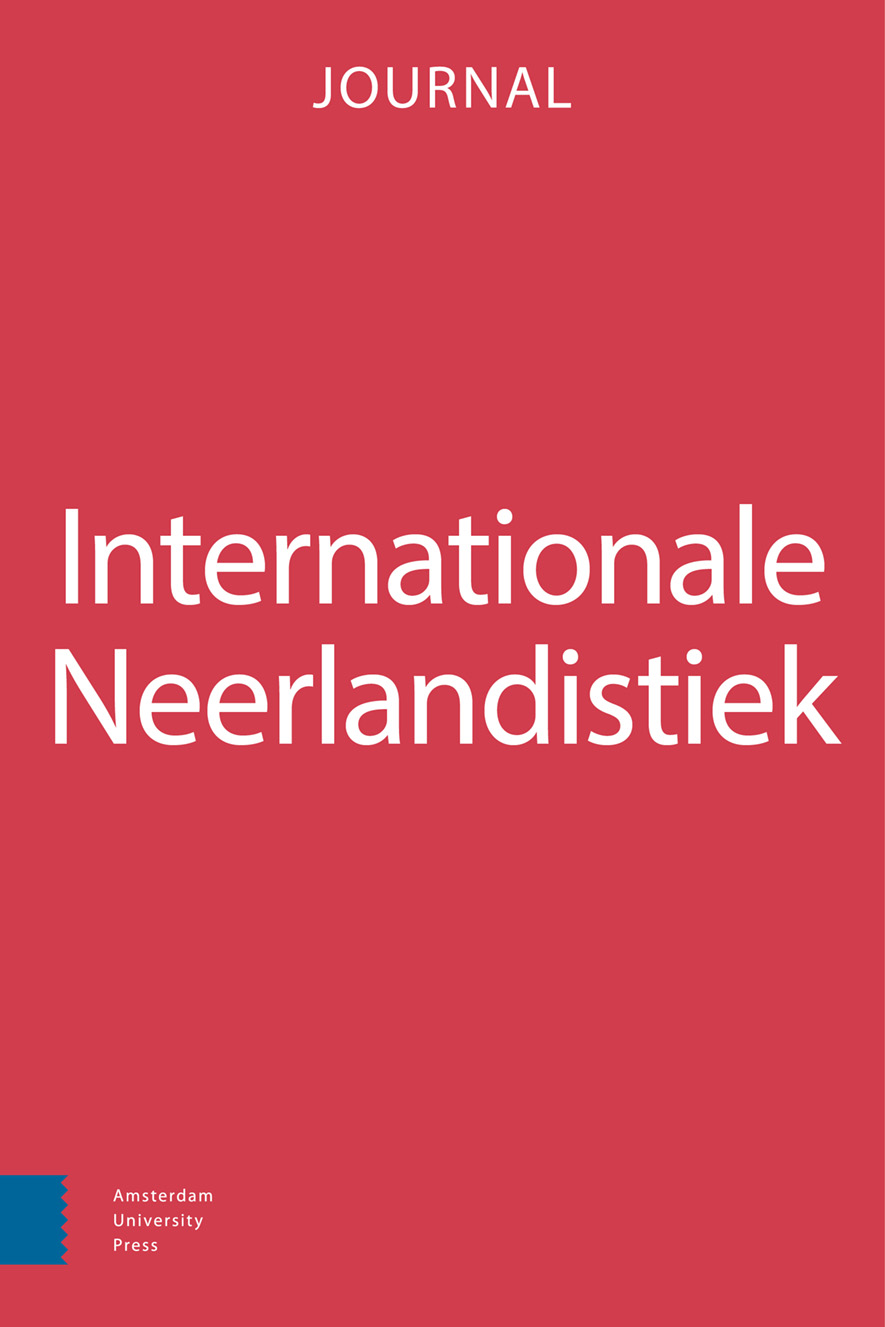-
oa Van heinde en verre
Ernest Claes en de kennis van een verteller
- Amsterdam University Press
- Source: Internationale Neerlandistiek, Volume 55, Issue 3, Nov 2017, p. 235 - 255
-
- 01 Nov 2017
Abstract
Ernest Claes is among the many interwar Flemish and Dutch writers who have gone down in history as so-called “storytellers” or “vertellers”. Although this concept is very often used to describe their authorship, its cultural-historical connotations have never been studied systematically. This article aims to fill this scientific lacuna by analyzing the relationship between narrative texts of the interwar period and the themes and techniques of the folk tradition of oral storytelling. Claes and two of his narrative texts function as representative case studies. To begin, the present paper zooms in on Claes’ views on the tradition of oral storytelling and links them with an essay on the same topic by Walter Benjamin, a contemporary of his. Next, two narrative texts by Claes are interpreted as literary revitalizations of the storytellers’ tradition and of its epistemic functions. The knowledge of storytellers, so the argument goes, exceeds the merely regional but also concerns the exotic.


